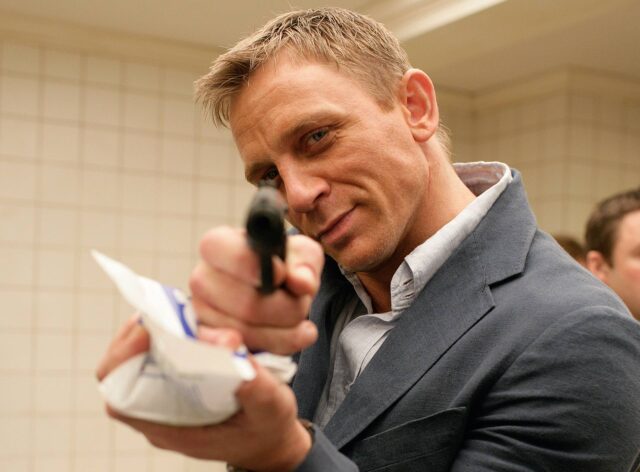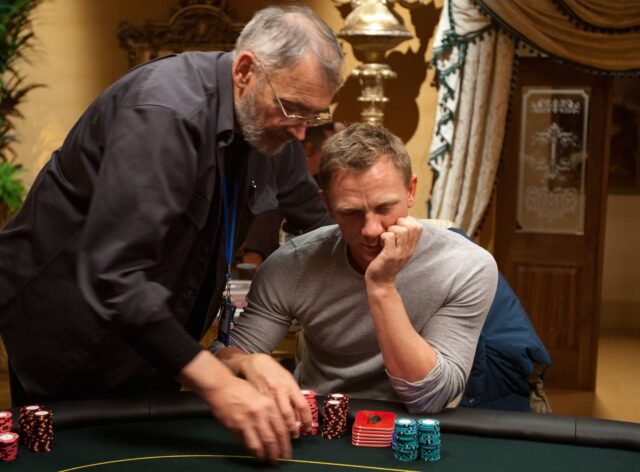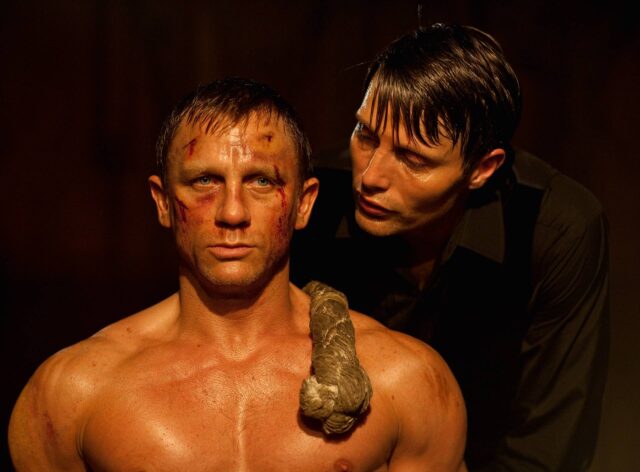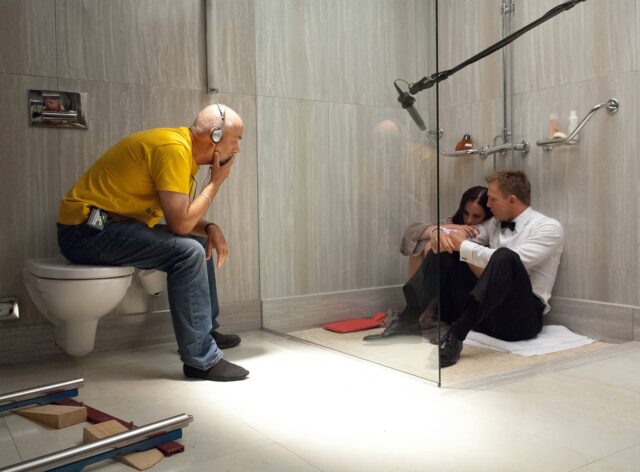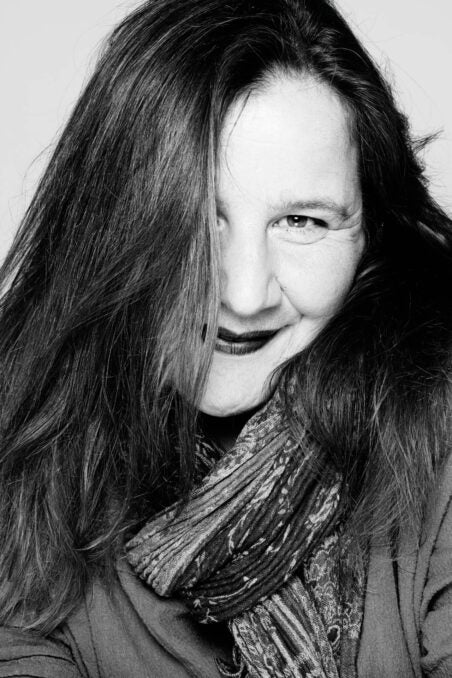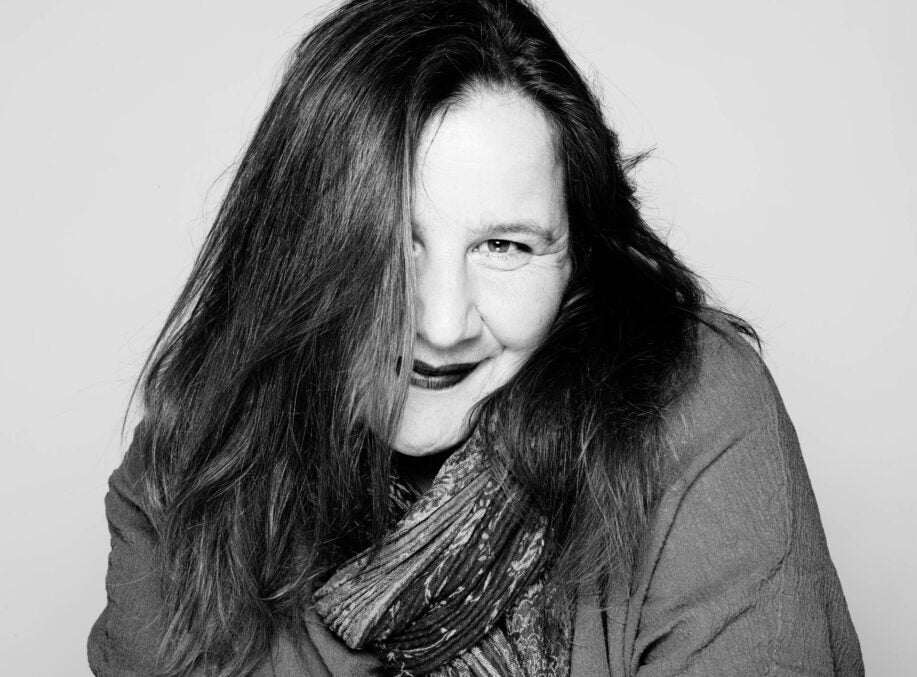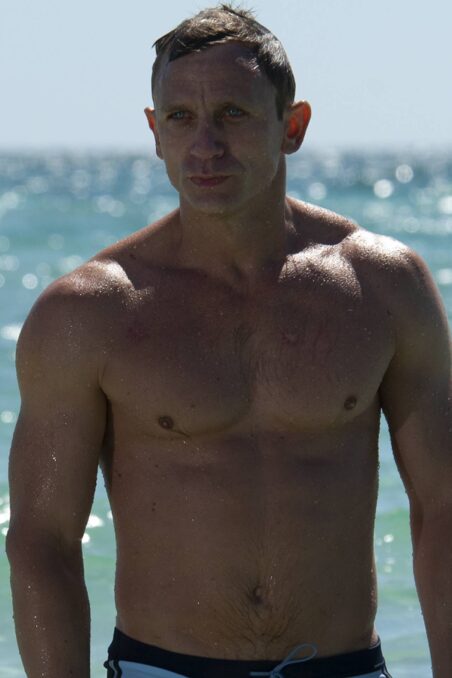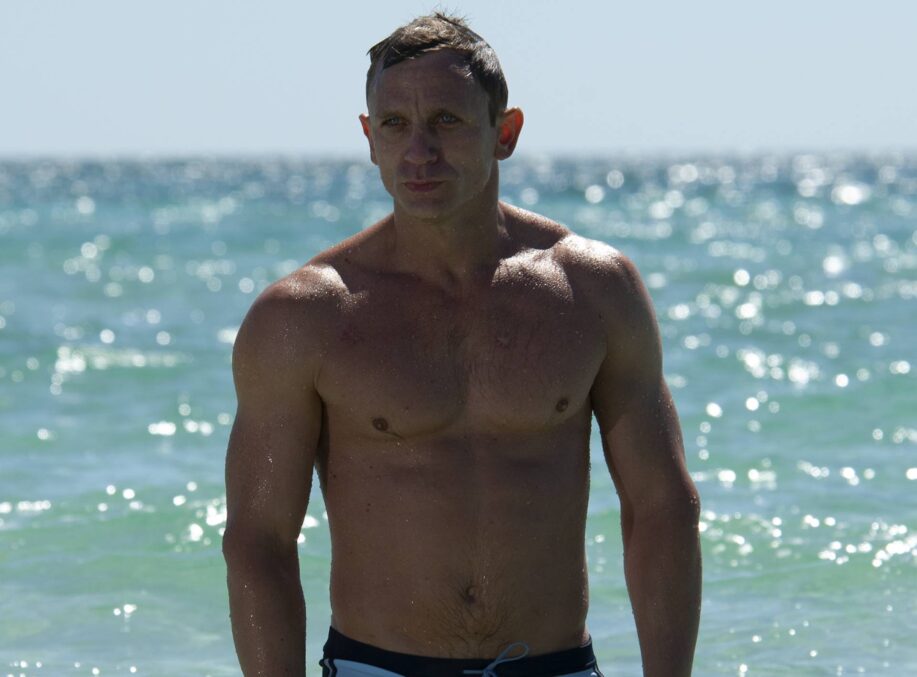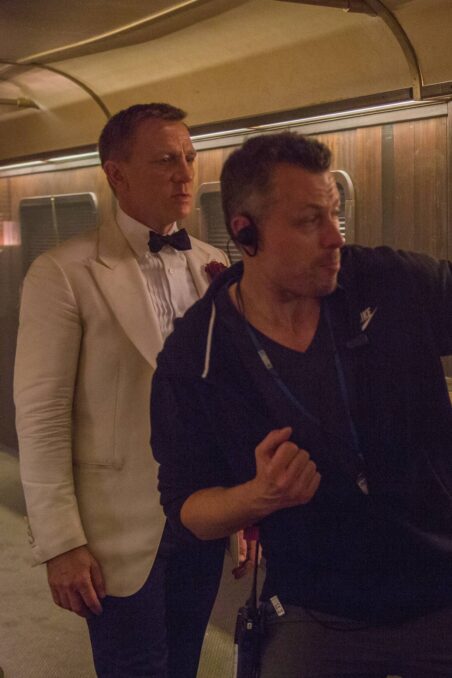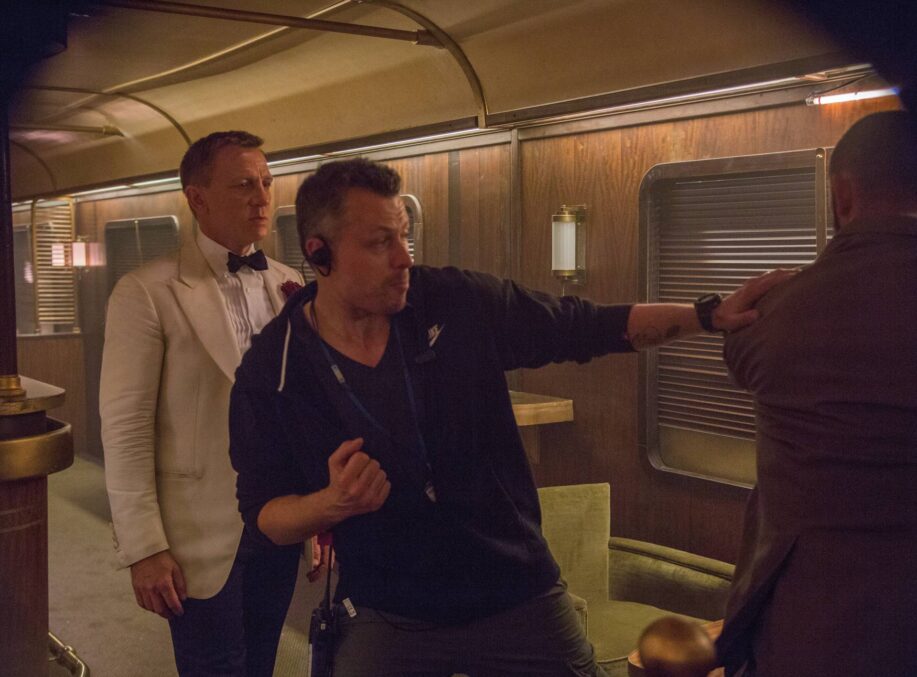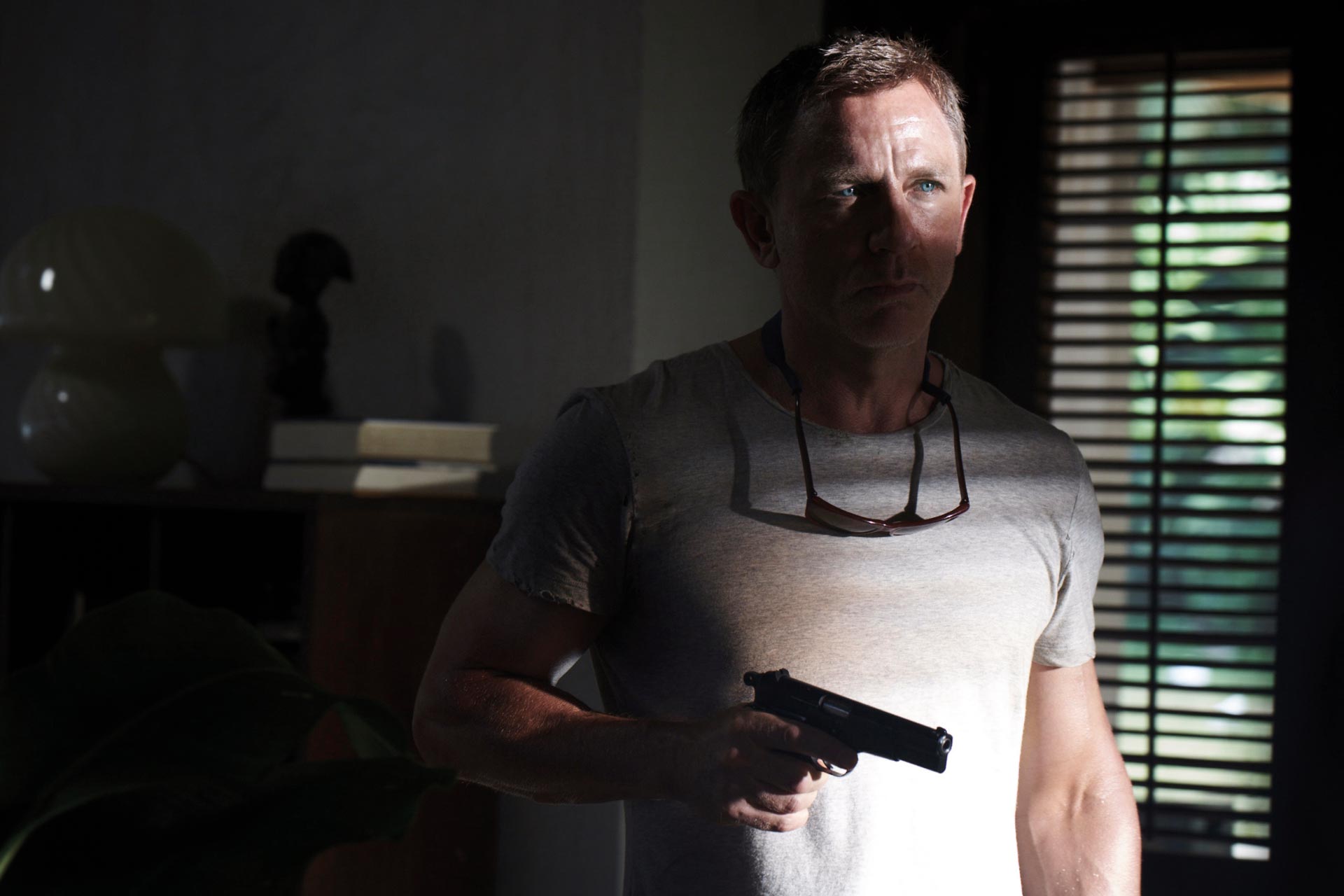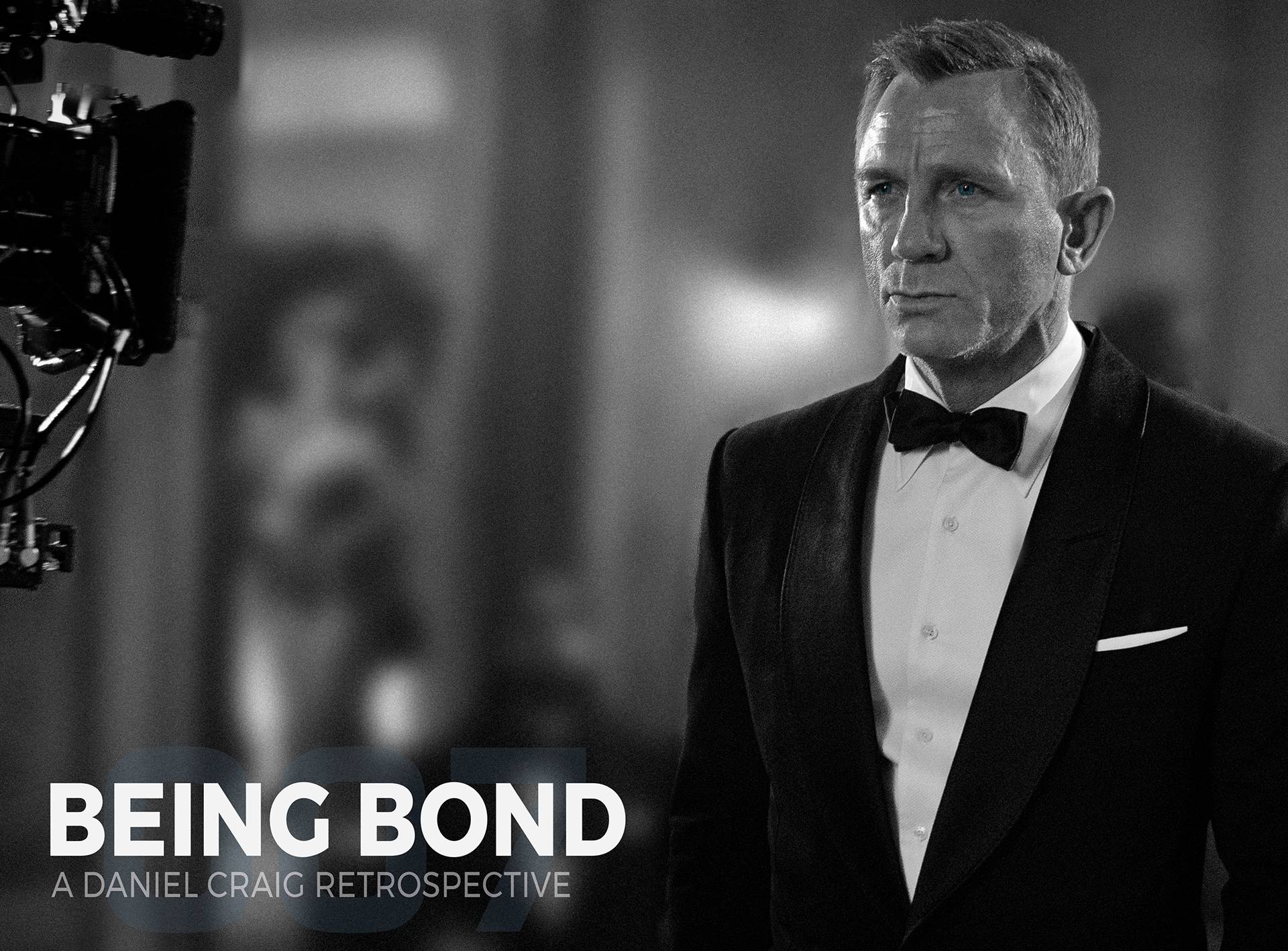

How Daniel Craig Became Bond
Stories from Being Bond, A Daniel Craig Retrospective
Being Bond, A Daniel Craig Retrospective, written by Mark Salisbury is out now. The 256-page hardback book takes us on Daniel Craig’s journey from 2006 to 2021.
Readers will go behind the scenes of Daniel Craig’s five films as James Bond with exclusive on-set photography, concept art, costume designs, stunt breakdowns and more, accompanied by cast and crew interviews. The extract below tells the story of casting Daniel Craig as 007.
“We wanted to do a twenty-first-century Bond and redefine what a classic male hero should be,” says Broccoli. “Casino Royale gave us the opportunity to get into Bond’s inner life. It tells you why he became the man he became, so we wanted an actor who could be an iconic image of the twenty-first-century man and who had the acting chops to be able to deliver the emotional inner life without a lot of dialogue, because Bond is a very internal character. It was a very, very tall order, and there were hundreds of people being discussed.”
Casting director Debbie McWilliams, whose association with the series dates back to the days of Roger Moore and who had been involved in the casting of Timothy Dalton and Pierce Brosnan, was given the herculean task of finding this new Bond. “The whole process was several months from me setting off with my backpack and passport going here, there and everywhere to when they actually chose him,” she recalls. “There are always the usual suspects, but I like to find people who aren’t well known or are slightly more unusual or a bit offbeat.” Initially she was looking for “young actors, much younger than Daniel was at the time, because it was about him becoming James Bond. I went to all the English-speaking territories and I met lots of people, and a lot of them have become very famous.” However, when it was decided that Bond should be young, but not that young, “we went up a level age wise, and it brought in a different group of people.”
One name had been on Broccoli’s list from the very beginning: Daniel Craig. A graduate of the National Youth Theatre and Guildhall School of Music and Drama, the Cheshire-born Craig had originally broken through with the BBC drama serial Our Friends in the North in 1996, before going on to prove his versatility in a succession of acclaimed film and television roles, with his taste erring towards the arthouse rather than the overtly commercial, be it as George Dyer, alcoholic lover and muse of artist Francis Bacon, in Love Is the Devil, the pampered son of Paul Newman’s mobster in Sam Mendes’s Road to Perdition, philandering poet Ted Hughes in Sylvia, or as a Mossad agent hunting down Palestinian terrorists in Steven Spielberg’s Munich.
Broccoli remembers first seeing Craig in Our Friends in the North. “Everything he did, he always became the character and disappeared into the role,” she recalls, “but he also had an unbelievable amount of charisma. I always say, ‘He’s lit from within,’ because whatever scene he’s in, whether it’s on the stage or on screen, he’s completely captivating. He is a great character actor, but in the body of a movie star, and it’s a very unique thing.”
While many critics saw Craig’s 2004 role as the nameless drug dealer determined to go straight in Matthew Vaughn’s Layer Cake as his “audition piece” for Bond, Broccoli insists it was his performance as Jesuit priest John Ballard in Shekhar Kapur’s 1998 period drama Elizabeth that convinced her Craig was the one. “I remember thinking, ‘Oh my God, he’s the guy,’ when he was in Elizabeth, walking down the corridor. I know that sounds crazy, but that was the moment I felt it in my gut. When your whole life is James Bond, some part of you is always looking for, Who could play the role? Daniel just eats up the screen. He’s a truly remarkable actor.”
McWilliams had her doubts. Not about Craig’s ability, but rather about his desire to take on such a high-profile role as James Bond. “I thought he probably wouldn’t be that interested, because he was a rather serious actor and did independent films and had never seemed to venture into the commercial side of things, apart from Layer Cake,” she reveals. “He’d been classically trained and it was hard to categorise him, although the stuff he’d done showed how versatile he was. We got in touch with his agent and she was rather doubtful as well, but mentioned to him what we were up to. He immediately went out and bought a copy of Casino Royale, and within about twenty-four hours was in the office at Eon, which confirmed his interest.”
“I got a telephone call, ‘Barbara would like to meet,’” recalls Craig, “and I thought, She’s probably seeing fifty people. I’m on a list. I’ll go in, do the interview, say, ‘Hello,’ and that’ll be it. I’d be that old bloke in the pub: ‘Yeah, I was considered for Bond once.’ So, I wasn’t excited or anything, didn’t feel particularly nervous. I’d met Barbara, sadly, at someone’s funeral long before and we had a couple of friends in common, and we just chatted. I don’t know what happened in the first meeting, but they said, ‘We want you to do this.’ I was like, ‘What are you talking about?’ It was not on my radar. Genuinely. Of all the people in the world I would have expected to play James Bond, it was not me. So, I went, ‘Well,
I better read the script.’ Then I went away and thought, This is ridiculous. I can’t do this. It felt so far removed from anything I was about, who I was, or what I was doing at the time. It’s not like I was snobbish about Bond. I’m a Bond fan. I love Bond.” In fact, Craig had been a fan ever since his father took him to see Live And Let Die (1973) when he was five. “But it wasn’t me.”
Broccoli sent the script on to Craig for his thoughts. “At a certain point it was, ‘We’ve got a script,’” he remembers. “I was like, ‘Okay, great,’ because I thought, I’m going to read it and go, ‘Thanks very much. It was lovely, but I can’t do this,’ and that’ll be the end of it. We all move on. Very nice. Then I read the script and was blown away. It was everything I would have wanted it to be. It was a resetting. It was witty. It was thrilling. It was dangerous. It ticked all the boxes I thought needed to be ticked if you were going to do James Bond.”
More than anything, Craig loved the attitude of the character. “The line that made me want to do the bloody film was, ‘Can I get a vodka martini?’ ‘Shaken or stirred?’ ‘Do I look like I give a damn?’ which in the script was, ‘Do I look like I give a f*ck?’” he continues. “I was like, That’s the reason I want to do the part. That was it, because that meant they were trying to break from a tradition. They were trying to disconnect and reset, and as far as I was concerned that meant resetting everything: resetting the toughness, resetting the gags, resetting the gadgets, starting again, reinventing it. I was like, ‘If we can do that, I’m f*cking in.’”
“He fitted right into that tone,” says Casino Royale director Martin Campbell. “Apart from being a fine actor, he had that rugged, tough look. It’s what Fleming wanted. He always said [American singer and actor] Hoagy Carmichael was the perfect looking guy to play Bond, and Daniel completely slotted into that concept.”
Discover more great stories and behind the scenes photos in Being Bond, A Daniel Craig Retrospective, written by Mark Salisbury, available now from 007store.com
